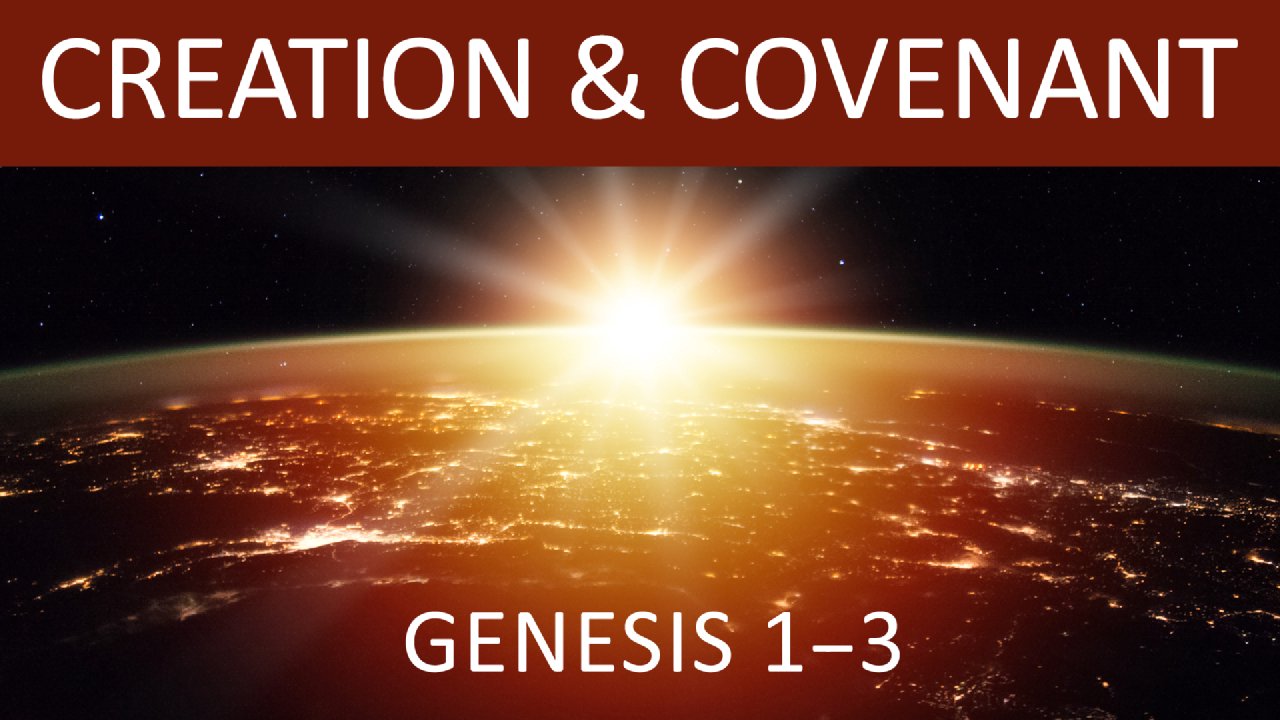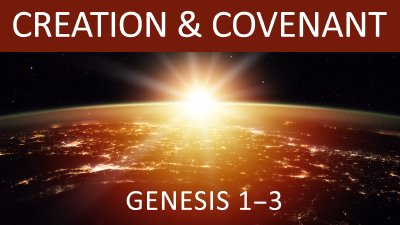On Sunday, we come to the Lord’s Day, a day that many have termed the Christian Sabbath. Going back to the time of Constantine, the Sabbath has been treated as a day of physical rest. In fact, our own country established it as day of rest, complete with blue laws, to honor the Sabbath and keep it holy. Yet, is that what Genesis 2:1–3 means when God says that he blessed the seventh day and made it holy? On Sunday, we are going to consider those very things.
In Genesis, the seventh day should be something assigned to the opening prologue (Genesis 1:1–31). As Genesis goes, the book of the generations of the heavens and the earth begins in Genesis 2:4 and goes through Genesis 4:26. In Genesis, the whole book is built around ten statements of the generations. But before that Genesis 1:1–2:3 is a section that introduces the whole of creation in seven days.
As I will try to show on Sunday, man was created on Day 6 *for* Day 7. That means that Day 6 was not the pinnacle of creation, Day 7 was. But what was Day 7 for? That is what we will consider on Sunday as we consider how this final day of the creation week culminated God’s very good creation. Even more, we will see how this day promises rest for all those who find Jesus Christ, the Lord of the Sabbath.
Truly, if you are feeling weary and heavy laden, if the burdens of life and sin are plaguing you, this message about God’s gift of rest is something you will want to hear. To prepare for Sunday, take time to Read Genesis 1:1–2:4. But also read Psalm 92 and Hebrews 4 and pray that the Lord would give you rest in Christ, who is bringing new creation glory to all those who are being remade in his image. This is what holiness looks like and it is something we will consider in detail on Sunday.
As the Lord allows, I look forward to seeing you this Lord’s Day.
For His Glory and your joy in Jesus,
Pastor David
As a reminder, the County Center Community Group is in our overflow downstairs this Sunday.
---------------------------------------------------------------------------------------------------------
Discussion & Response Questions (Genesis 2:1-3)
Discussion Questions for Genesis 2:1–3
1. How do these verses connect to Genesis 1:1–31 and what comes next in Genesis 2:4 and following?
2. What is unique about this passage? What are the key ideas expressed in the passage?
3. Are there any commands in this passage? Any direction for keeping Sabbath as a weekly pattern?
4. What does it mean that God rested? How does this day of rest relate to the other six days of creation?
5. What does it mean that he blessed this day and made it holy?
6. How does a comparison of this passage to other uses of the word ‘holy’ inform the meaning of this day?
7. How did the Sabbath operate in Israel? Did Jesus change that weekly pattern? How? See Matthew 11:28–12:6.
8. What does it mean to find rest today? How does the Sabbath relate to the temple and to the church?
9. Where can you find rest today? What does that actually look like?
10. How does Genesis 2:1–3 make you long for heaven?




